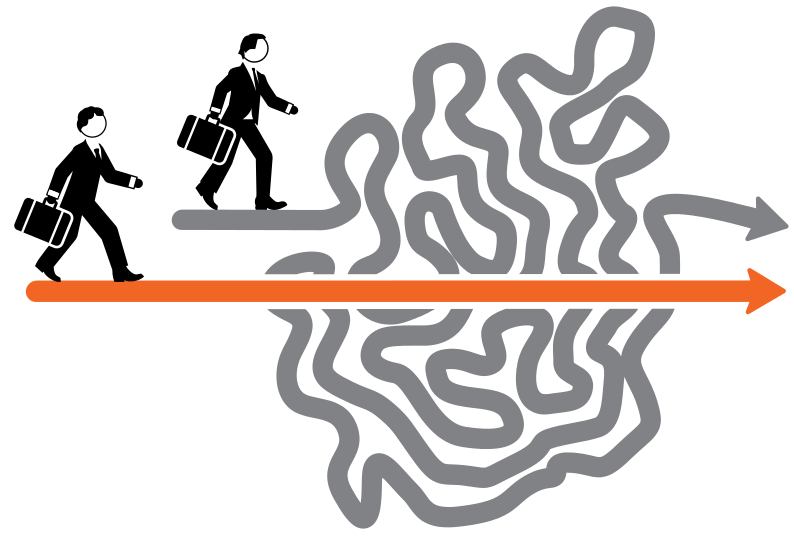Introduction:
A heuristic may be a process or mental shortcut that helps people to unravel problems and shorten deciding time which in turn facilitates to make judgments instantly and effectively but they can also lead to cognitive biases. If a person is confused in taking a decision or solving a problem, he can think in a heuristic way, and it would be very easy to make apt decisions. Here are a few of various theories from the best psychologists in India about why we rely on heuristics.
-
Attribute substitution: Substituting much simpler but related questions instead of trying to comprehend difficult questions.
-
Effort reduction: Using it as a type of cognitive laziness to reduce the mental effort and work required to make choices and decisions.
-
Fast and frugal: People use heuristics for the reason that they can be quick and precise in certain contexts. Some researchers claim that it can give accurate more often than biased ideas
In the1950s, Nobel-prize winning economist and cognitive psychologist Herbert Simon originally introduced the concept of heuristics when he suggested that while people strive to make rational choices, human judgment is subject to cognitive limitations. Researchers Daniel Kahneman and Amos Tversky in 1970s characterised 3 key heuristics: representativeness, anchoring and adjustment, and availability.
Availability Heuristics:
Availability heuristic is an unintentional perceptual shortcut that depends on recent instances that come to a person’s mind when assessing a specific topic, idea, method or decision. As follows, people have a tendency to use a readily accessible fact to base their beliefs about a comparably faraway concept. Reading and witnessing news about car robberies in your vicinity may give you the impression that it is much more common than it actually is. This type of availability heuristic may be beneficial and important in decision-making.
The availability heuristic is at work as people access available knowledge and use it to determine future probabilities.
Examples:
-
Lichtenstein et al. (1978) found that causes of death by automobile accidents were more frequently reported in the press than medically caused deaths i.e., were greatly overemphasized in terms of their frequency. While heart disease causes 85 percent more deaths than accidents, only 20 percent of those surveyed said that heart disease had the greater risk.
-
Rothman and Schwarz (1998) found higher ratings of risk for contracting a heart disease when participants were asked to list three (easy to generate) instead of eight (difficult to generate) factors that heightened their own risk.
-
Researchers in 1989 predicted that mock jurors would rate a witness to be more deceptive if the witness testified truthfully prior to lying than when the witness was caught lying first before telling the truth. To test the assumption, around 300 university students played the roles of mock jurors and viewed a videotape of a witness presenting testimony during a trial. Results confirmed the hypothesis, as mock jurors were mostly swayed by the most recent act.
Advantages:
The availability heuristic ensures that some risks stand out as particularly prominent, whatever their actual magnitude. When regarded together with intuitive cost-benefit matching, the availability heuristic helps to illuminate differences across groups, cultures, and even countries in the assessment of provisions to reduce the risks associated with climate change or any other issue of importance
Disadvantages:
Availability heuristic can be useful at times just like other heuristics. However, the problems and inaccuracies we may encounter due to it cannot be ignored completely. News reports of kidnapping and assault of women and children, airplane crashes and train derailments often lead people to believe that such events are much more typical than they truly are.
For example, after you see a movie about a nuclear disaster, you might become persuaded that a nuclear war or accident is highly probable. After seeing a car overturned on the side of the road, you might believe that your own chance of getting in an accident is very high.
Moreover, the longer you stay preoccupied with the event, the more accessible it will be in your mind and the more plausible you will believe it to be. Certain eventful happenings may be embedded in our memories more than others and this may lead to a bias about such occurrences.
This may be due to the excessive media coverage given to certain types of news, but sometimes the novelty or spectacle surrounding an event can cause it to become more available and easily procurable in your memory. Because the event is so extraordinary, it takes on greater significance, which leads you to incorrectly assume that the event is much more common than it really is.
Conclusion:
Heuristics play a crucial role in how we make decisions and perform upon information around us. Availability heuristic can be used to come up with solutions at certain instances even though it can create unnecessary bias and wrong impressions
It can be helpful to rely on numerous tools and decision-making strategies when you are trying to make a pick. This is because some things that you think instinctively may not necessarily be what is actually happening.

